Want to know what it’s like to TEFL in South Korea? Read this in-depth interview by Jessica from Unearth the Voyage, to get the lowdown on teaching life and everything in between.

Disclosure: Untold Wanderlust contains affiliate links. If you click on these links and make a purchase, we will earn a small commission at no extra cost to you. You can find our full disclosure policy and privacy policy here.
Country specifics
Which country are you teaching in/have taught in?
My fiance and I chose to teach English in South Korea. When we were deciding where to teach, we relied completely on the Internet as we had never met anyone who had ever taught English abroad. The more research we did, the more we decided South Korea would be the best country to teach in. The biggest reason we chose South Korea was that there was the potential to make the most money there! In South Korea, you also get your housing completely paid for, which was a big deciding factor for us as we could save our whole paychecks. South Korea is also a relatively small country, so we weren’t as overwhelmed when picking a city to teach in.
What qualifications are required to teach in South Korea?
To teach in South Korea, the government requires that you have at least a bachelor’s degree and you are from a native English-speaking country. Your degree can be in any subject, it does not have to be in English or Education. In terms of a TEFL or CELTA, that is a case-by-case and up to the school, you are applying to teach at. Some require it, some favour applicants that have a TEFL or CELTA, and some don’t mind if you don’t have anything. Our school said they didn’t mind we did not have any extra certifications, and then a couple of months before our contract started, they asked us to complete an online TESOL certification course. It wasn’t hard, and it only cost $150 so we complied. Aside from teaching in South Korea, a TESOL course will also help you gain work teaching online.
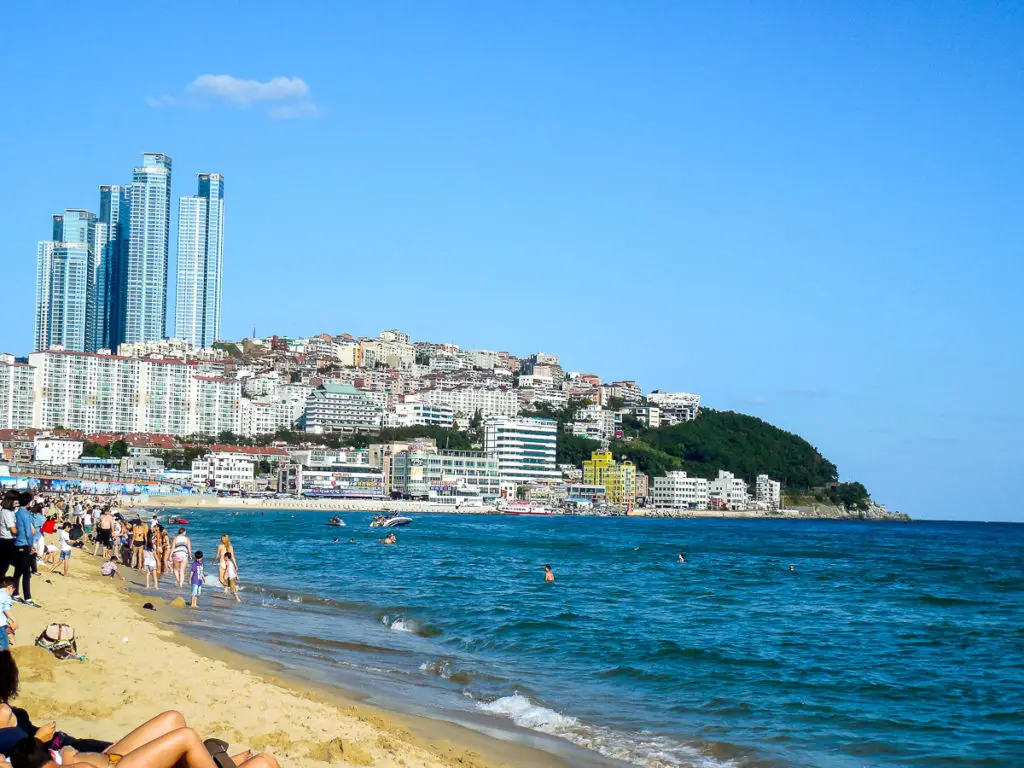
What is the best thing about living in South Korea?
There are so many reasons why we loved living in South Korea, but I would have to say our number one favourite part was how safe the country is. You can travel anywhere and feel absolutely at ease, as the crime rate in Korea is extremely low, and the people are so friendly. I left my purse in a restaurant once and came back the next day to it sitting right where I left it! I also would walk home alone really late at night and never felt concerned for my safety.
What is the worst thing about living in South Korea?
There were some things we didn’t enjoy about living in South Korea, but the number one thing that got under our skin was the education system and how much pressure they put on kids. Our poor students were either at school, at an after-school class, doing homework/ studying (while eating) or sleeping. There was no in-between, and they were always extremely tired. This made it hard work at our school because our director and manager put so much pressure on us to push the kids every single day to complete the most material possible in a short amount of time, and then assign them a lot of homework (which did not include the homework they already had from school) and the 6 other after-school academies their parents were forcing them to attend.
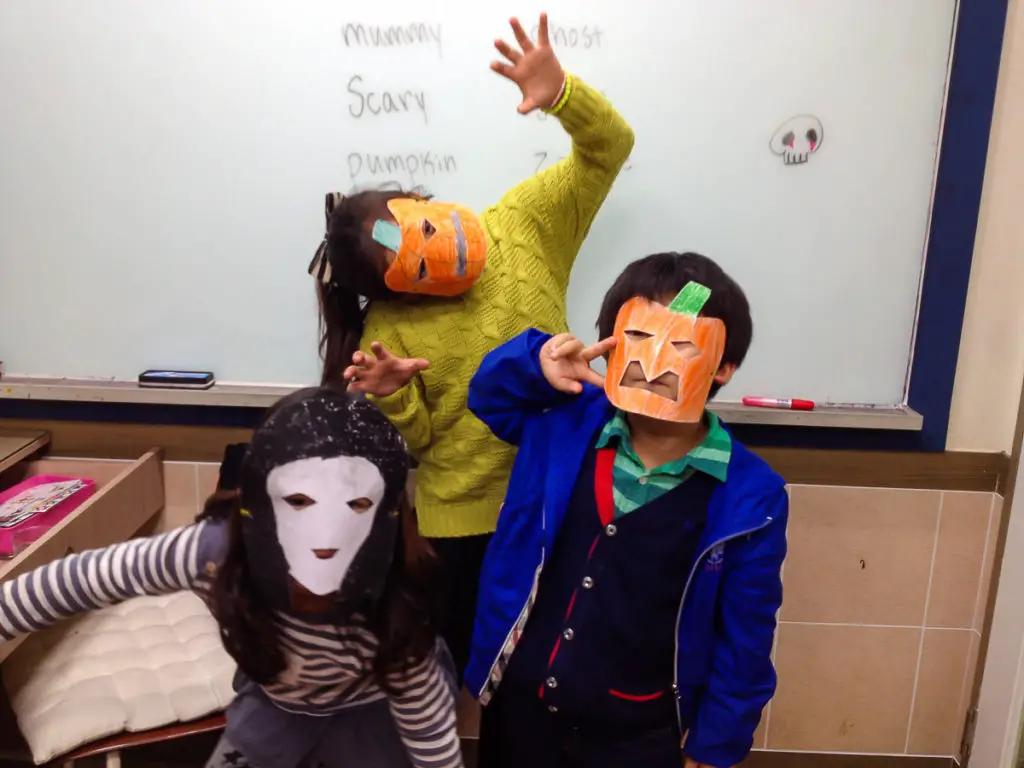
Is there a big ex-pat community? Is it easy to make friends?
We lived in a smallish (small for Korean standard) city just outside Busan. We thought this might make it difficult to find an ex-pat community, but it made it extremely easy. There weren’t too many ex-pats – but there were also enough of us to have lots of friends! The best way we found to meet other ex-pats was to join Facebook groups to learn about different meetups and activities. Another way was to go to the ex-pat bars and just mingle! We met so many people this way and are still great friends with lots of them today.
What is the cost of living in South Korea?
As mentioned before, accommodation in Korea is paid for, so if a school does not offer this, run away! In regards to all other costs of living, South Korea has a relatively similar cost of living as the United States. If you are in Seoul or Busan, your cost of living will be significantly more expensive than if you are in a smaller city. Other than accommodation, you do have to pay utilities – we paid about $100 a month for our electricity bill and $30.00 a month for the internet. We did not get a cell phone plan while we were there as they are super expensive ($100+ a month) and we couldn’t figure out how to just get a SIM card and pay as you go (it doesn’t seem to be a big thing to do in Korea.) Eating out at a restaurant costs between $9-$13 per person. Beer and Soju at a convenience store are pretty cheap – Soju is under $2.00 and beer is usually under $5.00. Our school provided a bike-share pass so we rode bikes as our main way of transportation. A taxi ride costs anywhere from $4.00 and up depending on how far you are going. The bus cost approximately $1.00 to ride as far as you wanted. We spent about $60.00 on groceries once a week!
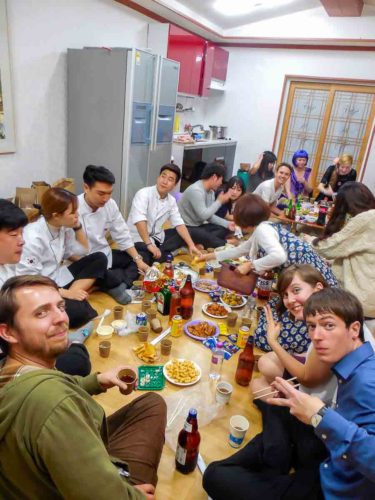
Moving abroad to TEFL in South Korea
How did you find your teaching job?
We used different forum websites such as TeachAway.com and ESLcafe.com to find our teaching job. We connected with several different recruiters who sent our resumes to different schools throughout South Korea. Once you connect with a recruiter, they will send you jobs that they think would be a good fit for you. So, if you request different things like a certain city or type of job (teaching strictly Kindergarten or only teaching Middle School students) they will attempt to send you those types of jobs. Our only requirement when we were looking for a job was that we wanted to be hired by the same school so that we could share accommodation. We got really lucky to accomplish this as most schools cannot fulfil this request. We met a lot of couples who had two different apartments and just chose one to live in together!
How did you find your accommodation?
We were given our accommodation through the school we ended up working with. You usually will not have any say in this, and you will just get what you get. You can, of course, ask how far it is from the school you are teaching at, and what furnishings it will have.
What did you do to prepare to move abroad?
We did a couple of different things to prepare to move to South Korea. The first was we exchanged some USD for the local currency-Won (₩) so that we could have some cash when we first arrived. We also attempted to learn a bit of the local language and how to read Korean Hangul 한글 as this helped a lot with culture shock and getting around when we first got there!
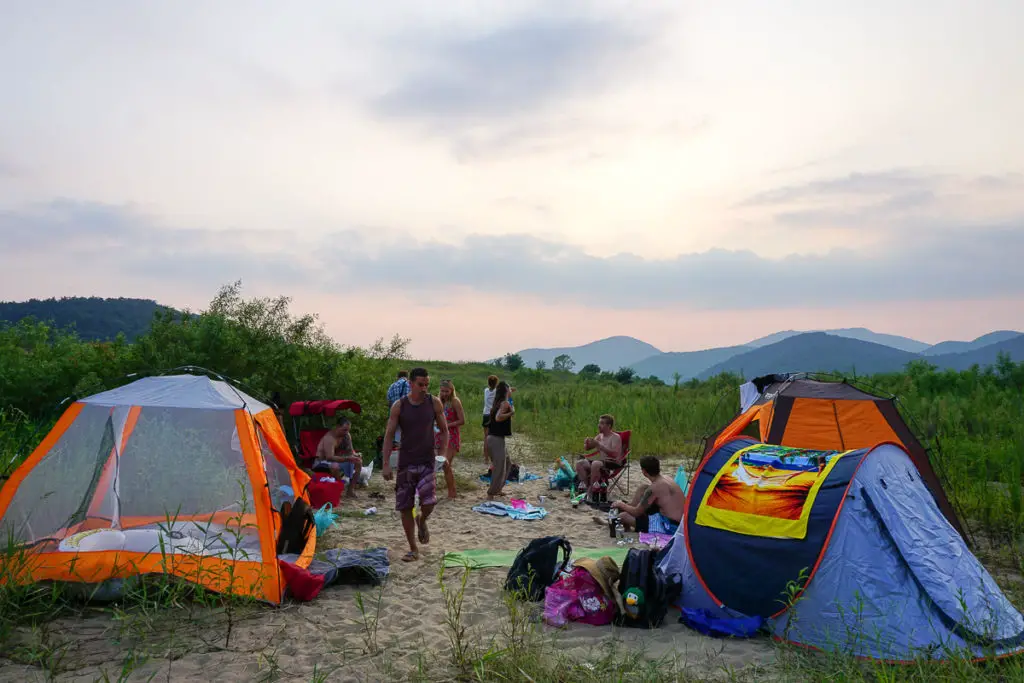
Did you get culture shock? How did you overcome this?
I think we had a bit of culture shock. One of the things I remember vividly was that we didn’t know how to use chopsticks when we first arrived, and it is the only way to eat so you have to learn fast. We were thrown into teaching fast and were expected to learn everything we needed to know within 2 days. I do think that having our jobs to focus on helped alleviate the culture shock a bit. We also made friends very quickly, so we were able to chat with other people about the differences we were experiencing which helped us to know other people were going through the same things we were!
In the classroom
Which grade(s) do you teach?
We taught all grades but high school! We had students as young as 3 years old and we even taught some adult classes. For the most part, though, we taught elementary school grades as well as middle school classes.
On average how many students are in the class?
In some of our classes, we only had 1 or 2 students and other classes had 10. We never had any more than 10-12 students as we each only had 10 desks in our classrooms! However sometimes for some reason, there would be more students than desks and we would have to pull in a desk from another classroom.
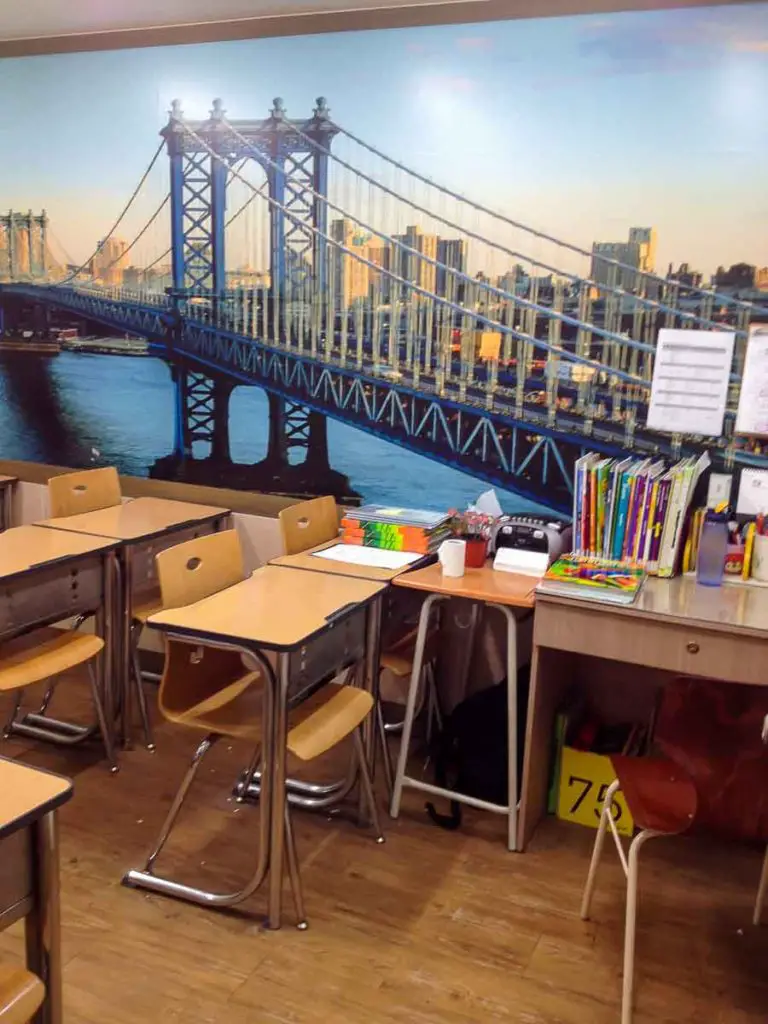
Did you have a teaching assistant (TA)? Do you find your TA useful?
We taught at an after-school academy, so we did not have a TA. Most public school teachers do have Korean co-teachers, but in the after-school academies, you are on your own. At our school, we did have Korean teachers who taught different subjects than us, like grammar and reading. The Korean teachers were there to ask any questions we might have had.
What classroom materials and tools are available?
At the beginning of each semester, we were expected to go to a bookstore with the other teachers at our school and pick out the textbooks we wanted to teach for the next semester. Most of our classes were taught straight from the book, and since we taught younger students the books are all designed to be interactive and fun. Other than the books, we were not provided with any other materials. Any extra things (which we were expected to do because the education system in Korea is a little extra) came out of our pocket. We got away with not buying much but expect to budget at least a little bit for fun activities-type stuff and maybe stickers or prizes for those special days.
What is your favourite classroom game?
It wasn’t so much a game but rather a great way to get kids to interact more and to get the quiet kids to answer questions. Instead of having kids raise their hands or randomly calling on kids to answer a question- I would throw them a beach ball. Whoever I threw the beach ball to was the person that had to answer the question and then the next time a question needed to be answered- the kid with the beach ball would throw it to someone else! I made a rule that they could only throw it to kids who hadn’t answered a question yet until everyone had a chance with the beach ball.
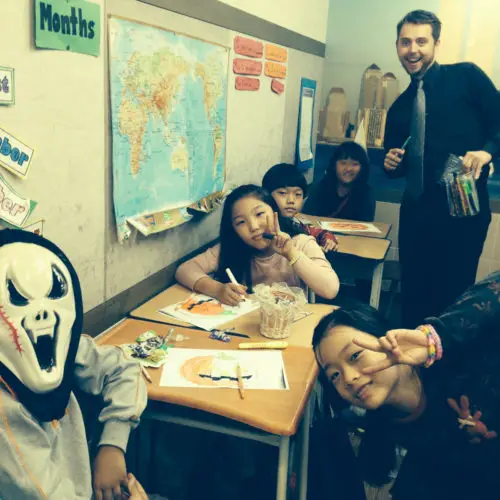
Do you have any funny experiences from teaching?
It seemed like every day a kid was doing something that made me laugh. One time a kid wanted to know how you say “Kimchi” in English. I told him- you just say “Kimchi.” And he was so confused, he thought there must be a different word for Kimchi in English as Kimchi is a Korean word. Since we don’t have Kimchi I tried explaining to him that we just use the Korean word for it. He got very frustrated and I finally just wrote Kimchi on the board in the Roman alphabet instead of using Hangul and he was finally ok with that.
A TEFL in South Korea workweek
What is your work week like?
Since we taught at an after-school academy, our work hours were a bit different than most. We started work at 1:30 pm and we left at 9:30 pm. We worked Monday-Friday and we were never asked to work any weekends. Some of our friends were expected to work one Saturday a month, so make sure you ask about this when looking for a job.
What do you like to do when you are not teaching?
We loved to go hiking, explore other cities in Korea, try all the delicious food, hang out with friends, go camping, go to festivals, explore the temples, go to the beach, shop, or just relax! There are endless things to do in Korea and since it is such a small country it is so easy to get around!
Do you have any bad experiences with TEFL in South Korea?
The worst thing we experienced while teaching in Korea was being asked to teach outside of our normal school. I taught at various locations, such as kid’s houses and other private English teaching academies. Halfway through our contract Ron was “asked” to teach at a completely different school twice a week that was a 45-minute bus ride away. It wasn’t the worst thing that could have happened, but we were not told about this possibility before signing our contract and would have liked to know if we were going to have to teach elsewhere. This is because each school and director have different requests, ideas of teaching, completely different contracts, working conditions and hours. We felt as though we were a bit taken advantage of since when we signed our contract we signed it with the pretence that we knew what we were getting into (when in fact we did not.) If you teach in Korea, you will learn quickly that you just have to go with the flow and roll with the punches as things are constantly changing on a complete whim.
Personal experiences of TEFL in South Korea
What advice would you give to someone thinking about going to TEFL in South Korea?
I would say first and foremost, be prepared for anything and make sure that you have an easy-going attitude! Teaching in South Korea is amazing but can be difficult at times due to the cultural differences you might not be used to. Second, I would say to take a close look at the contract you are signing. I have heard (and experienced through friends) horror stories where the job was not good at all and the director of the school was taking advantage of the foreign teachers.
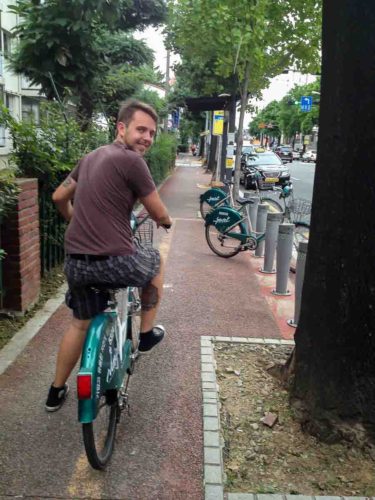
One way directors do this is by not paying into your pension, which is required by law. If you are from certain countries, you can claim your pension when leaving which can add up to quite a bit of money! If you are ever unsure your director is paying into your pension- you can go to the pension office and find out.
What is the most rewarding part of your job?
Teaching in Korea is an incredibly unique situation where you are surrounded by other ex-pats from all over the world together in one place where no one knows anyone. This doesn’t happen in lots of places in the world, so it makes it easier than ever to make friends and connect with like-minded people. Our favourite part about moving to Korea was the people we met and the friendships we developed while we were there- it’s not part of the job but it still kind of is because we wouldn’t have been there if it weren’t for being allowed to teach English there!
Any other comments that you would like to add?
If you are thinking about teaching English in South Korea- Just do it!! There are highs and lows, but we absolutely will never regret the decision we made to sell everything we owned and leave behind our lives in the USA to explore something new and challenging. We grew so much as people during our one-year teaching in Korea and we don’t think there is any other type of experience like it.
Still, considering where to teach? Check out what it’s like to teach English in Thailand.
Like this post? Pin it!

Meet the guest blogger
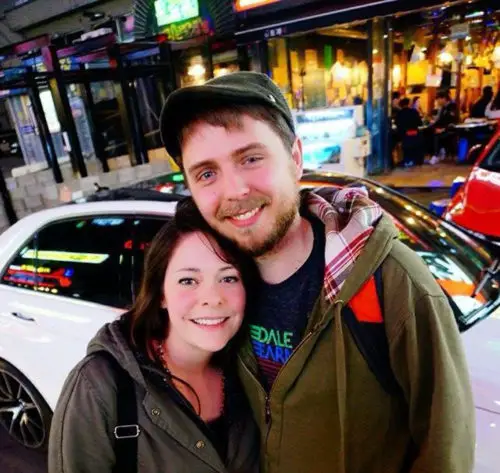
Jessica Drier: I am a travel-obsessed 20-something millennial who loves to explore off-the-beaten-path destinations! Along with my fiance, we have started our own business which allows us to work online while living all over the world! We are extreme nature lovers and you will usually find us out hiking when we aren’t stuck behind our laptops working on our business or blogging about our voyages! When we moved to South Korea, we had only been dating for one year and we had barely ever been abroad. We have now been together for 6 years and have travelled to 15+ countries. To learn more about us and follow along on our adventures, find us on our blog, Unearth The Voyage or on our Instagram account.
